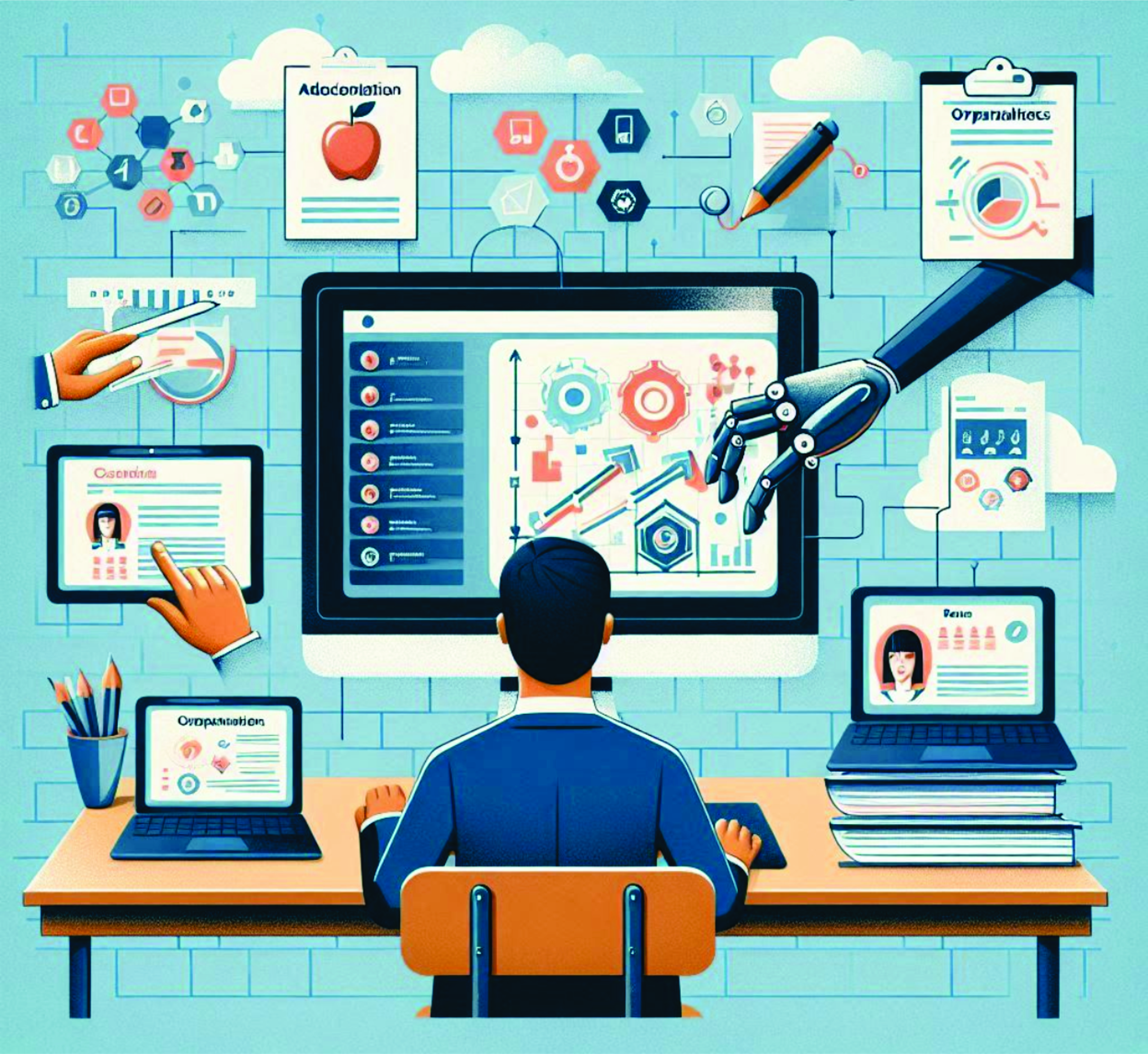Ai In Education: The Transformation Redefining The Future Of Schools
Published on: Dec. 24, 2024
Reading time:
4 minutes

AI generated image
An article by Education Next explores how Artificial Intelligence (AI) is shaping the future of education and highlights the profound transformation it promises. As technology advances, administrators, teachers, students, and learners face a new era filled with challenges, risks, and significant opportunities.
Personalized Learning: The Power of AI in the Classroom
One of AI’s greatest promises in education is personalized learning. With advanced algorithms, educational content can be tailored to meet each student’s specific needs, allowing everyone to learn at their own pace. This is particularly beneficial in classrooms with students of varying skill levels, ensuring no one is left behind.
Efficiency and Optimization of Educators’ Time
For teachers and administrators, AI can serve as a powerful tool to optimize time and resources. Automating administrative tasks such as grading and managing records frees educators to focus on what truly matters: teaching and inspiring students. Additionally, AI tools can provide data-driven insights into student performance, enabling teachers to quickly identify areas needing more attention.
Challenges and Risks: The Flip Side of the Coin
Despite its promises, integrating AI into education is not without challenges. Privacy and data security concerns regarding students’ information are paramount. As more personal data is collected and analyzed, protecting it from unauthorized access becomes critical. Furthermore, excessive reliance on technology could exacerbate existing inequalities if access to AI tools isn’t equitable across all institutions.
Another challenge lies in preparing educators for this new reality. Training teachers to effectively and safely use new technologies is essential. This requires continuous investment in professional development and technological infrastructure, especially in underprivileged areas.
The Role of Administrators in Educational Transformation
Educational leaders play a pivotal role in the successful implementation of AI in schools and universities. They must ensure that AI solutions are secure, effective, and accessible. Moreover, they should foster a culture of innovation among teachers and students, encouraging the critical and responsible use of these emerging technologies.
Conclusion: A Promising Future That Demands Caution
Artificial Intelligence has the potential to revolutionize education, making it more inclusive, personalized, and efficient. However, for this revolution to yield positive outcomes, all stakeholders — from administrators and teachers to students and learners — must be prepared to address the accompanying challenges.
The future of education will be shaped by the decisions we make today. It is crucial that these decisions are guided by principles of equity, security, and innovation.
Read more on this topic in the original Education Next article here:
Share post:
Return to blog


